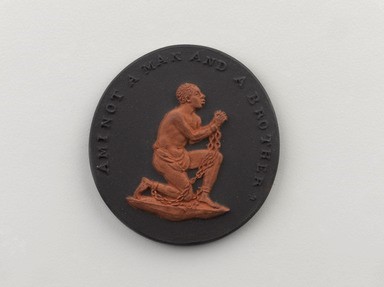By: Dr Sarah Irving-Stonebraker
In our culture today, there is a strange set of attitudes toward history.
On the one hand, there’s a highly politicised approach to the past, in which people care passionately about history’s symbols and what they represent, witness the recent protests about and tearing down of statues across the Western world. And yet on the other hand, we know less than ever about history and are losing the ability to grapple with the ethical complexities of the past – the entwining of good and evil – in the same historical figure, or empire, for example.
I fear that as a society we are losing our historical literacy. What I mean by this is that we are losing our ability to engage in moral reasoning about history. This is in no small part because we live in what I term an Ahistoric Age. That is, in contemporary Western societies, which are underpinned by the idea that life is about self-invention and fulfilment, we have largely ceased to think of ourselves as historical beings; the past has nothing to teach us.
When We Put ‘Me’ At the Centre
A recent conversation I had with one of my undergraduate university students is a good illustration. He said, “Why would I study the British Empire? It has nothing to do with my life.” (My emphasis). Not long ago, perhaps only a generation, part of the point of studying history was to understand the history of peoples, empires, countries and so forth, and then make sense of who I am, and how to be a citizen in my society, in light of these larger stories. But the premise behind my student’s question is that the way we make sense of our world – past, present, and future – is through taking me as the starting point. Why is this?
In contemporary Western societies the central idea of what constitutes human flourishing is self-expression and self-actualization. Our culture’s vision of what life is all about can be described as “finding your personal happiness through being your true self”. This is a culture that emphasises the highly individualistic creation of our identities and lifestyles. The cultural axioms of today, which we see everywhere from advertising for clothing to private schools, embody the idea that your true potential needs to be unleashed, and this is the key to life: finding happiness (defined in highly individualistic and consumeristic terms) as personal wellbeing through self-fulfilment. It’s “live your best life” and “you do you”.
We have detached the individual from any transcendent story that gives an account of the big questions, and any grounding for ethical and moral categories. Yet these are precisely the kinds of conceptual tools we need to reason about the past and to have a conversation in which we can genuinely, respectfully, disagree. We yearn, for example, for justice. We long for the horrific wrongs of history to be recognised and properly understood. But we can only engage properly with these kinds of issues if we have robust criteria for assessing justice and injustice, not to speak of good and evil, truth and lies, and so forth.
We Are All Part of a Bigger Story
The more that we unhinge the individual from the larger stories that give an account of the big questions, the more we are ill-equipped to grapple with history. We reduce ethical reasoning to emotivism; we just assert our wills and feelings. We fumble around with crude ideological categories rather than engage in a genuine conversation, because a conversation relies upon a shared set of assumptions – about justice and the good for example – to which we can appeal. We have lost the meta-stories that show us what the proper and just use of power and authority ought to look like. This is why it is increasingly difficult to have a civilised debate and disagree with each other in a healthy manner.
It is possible to critique injustice, even injustice of the present, through the lens of a larger story. In doing so, we are drawing upon a vision of the just and good, and this can give us hope. The abolition of slavery in the British Empire is a helpful illustration. In the late 18th century, the British statesman William Wilberforce led a movement of evangelical Christians on a decades-long campaign for public opinion, and in the British Parliament, to abolish the slave trade in the British Empire. Wilberforce and his friends argued the Biblical principle that all humanity was created in the image of God, all were of equal moral worth, and that slavery was incompatible with an empire that aspired to ground itself on Christian principles. “Am I not a Man and a Brother?” was the iconic catch-cry of the abolitionist movement, emblazoned on pamphlet and newspaper literature, medallions (see image below), and even Wedgewood pottery.

Samuel Clarkson, the Church of England deacon who was a leading campaigner wrote in his diary that “in the Scripture, no national crime is condemned so frequently and few so strongly as oppression and cruelty, and the not using our best endeavours to deliver our fellow creatures from them.” It took decades, but the abolitionists finally managed to persuade parliament to pass the Slave Trade Abolition Act 1807 which abolished the slave trade in the British Empire, and the Slavery Abolition Act of 1833. The abolitionist movement held the Empire to the standards articulated in the Bible, standards which articulate the equal dignity and moral worth of every person.
The Anchor of Christian Faith
Christianity explains that all human beings are made in God’s image, and therefore inherently precious and of equal value, yet that we are fallen and broken and so we expect moral failure in human beings As the Russian author Alexander Solzhenitsyn, whom the Soviet Union put in a concentration camp put it, “the line between good and evil cuts through the heart of every man.”
I believe it is possible to reengage with history properly, through reasoned, thoughtful, and informed discussion. This is precisely the kind of discussion which is central to life in a liberal democracy. Moreover, we need to engage with history through the lens of a story that gives us a way of understanding and critiquing injustice, making sense of human failings, yet also giving a vision of hope, the good, and human flourishing. These are the intellectual resources that equip us to wrestle properly with the past.
Image credits: William Hackwood (died 1836). “Medallion”, after 1786. terracotta on basalt (stoneware), 1 1/4 x 1 1/4 in. (3.2 x 3.2 cm). Brooklyn Museum, Gift of Emily Winthrop Miles, 55.9.25v. Creative Commons-BY (Photo: Brooklyn Museum, 55.9.25v_PS9.jpg)
Article supplied with thanks to City Bible Forum.
About the Author: Dr Sarah Irving-Stonebraker is an Australia based academic focusing on the history of Britain and the colonial world, and the intersection of religion, science and politics.
Feature Image: Photo by Chris Lawton on Unsplash




